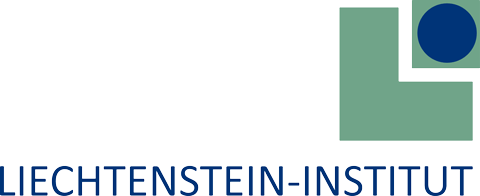Legal Analysis of the Financing of public service broadcasting and media funding
There is a lot of talk about the challenges posed by the digitalisation of the media. However, this does not mean that radio and television are no longer important. On the contrary, the question of the financial resources and mission of public service media is perhaps even more pressing in view of the competition. For this reason, it is important to consider how public service broadcasting organisations are financed and what their mission is.
These questions are answered by comparing the legal situation of Liechtenstein’s public radio (Liechtensteinischer Rundfunk LRF) and the public broadcasters in Switzerland, Austria and Germany. Because every medium can make an important contribution to media diversity, especially in a microstate like Liechtenstein, the legal structure of media funding in Liechtenstein will also be analysed.
The publication “Liechtenstein im Europäischen Verfassungsverbund”, published in 2022, contains a chapter on the media. It examines whether the requirements under international and European law regarding disclosure obligations and the fair allocation of funds to the private media are respected in Liechtenstein.
The publication LI Focus 1/2023 from August 2023 primarily focuses on the requirements of the Council of Europe and the EU (or for Liechtenstein: the EEA). It also highlights the differences between Liechtenstein’s public radio and the private media in Liechtenstein, which are owned by private companies but – provided they fulfil the requirements – can benefit from state media funding.
Since the beginning of April 2024, the e-book “Die Finanzierung des öffentlich-rechtlichen Rundfunks” (Financing public broadcasting) has provided a comprehensive analysis of the legal requirements for the financing of public radio and television broadcasters in the four German-speaking countries and media funding in Liechtenstein.
For a broader audience, various findings from the study were explained on April 16, 2024 at the Liechtenstein Institute and on May 27, 2024 in a webinar by Weblaw. The documents for both events can be found in the "Liechtenstein Institute events" and "Other events" sections on the right-hand side. On June 24, 2024, Patricia Schiess also had the opportunity to explain various points of the study in more detail and discuss current developments in Liechtenstein and Switzerland in the Ars Boni 508 podcast.
On November 11, 2024 – shortly after the popular vote to repeal the Liechtenstein Broadcasting Act – Patricia Schiess was once again available to talk to the Ars Boni podcast.
The science magazine “160 im Quadrat” discusses the challenges that all media have to face due to digitalization. Due to its small size, Liechtenstein's media professionals in particular have to overcome additional hurdles.
The Swiss online magazine Jusletter from February 3, 2025 contains a review of the vote on the repeal of the LRFG. First, the Liechtenstein media system and the DpL initiative are presented, followed by a critical analysis of the arguments put forward by supporters and opponents of the popular initiative.
Project duration: 2022–2024








